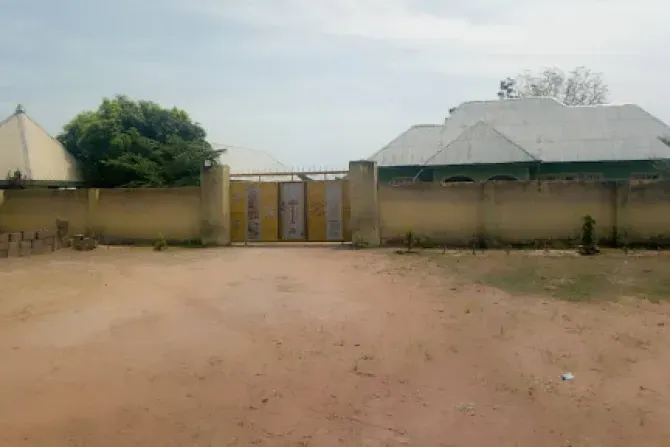 A survivor of an attack by Fulani herdsmen in Gbeji, Benue State, in Central Nigeria, on Oct. 19, 2022. Courtesy of Kyarto Tyoumbur
A survivor of an attack by Fulani herdsmen in Gbeji, Benue State, in Central Nigeria, on Oct. 19, 2022. Courtesy of Kyarto Tyoumbur
The farmers throughout Benue State, often called the “breadbasket of Nigeria,” are facing crop reductions due to unusual flooding as well as the widespread fear of murder by armed terrorists when they attempt to harvest crops. Millions of Benue farmers and their families are living in displaced persons camps because they have been forced off their land by marauding militias.
A Fulani presidential candidate weighed in after the Gbeji massacre with his condolences to the grieving families in a Facebook post that some interpreted to contain a veiled threat.
“My deepest condolences to the families that may have lost a loved one and to the people and government of Benue State, “ wrote Atiku Abubakar, the presidential candidate of the People’s Democratic Party (PDP).
“The continuous escalation of intercommunal violence does not bode well for our national unity,” Abubakar wrote.
(Story continues below)
But the candidate implied that violence may continue so long as Fulani people are not welcomed into the Benue communities of farmers.
“When our people are well integrated into communities where they live, work, pay taxes and raise their children, they’d be obligated to reciprocate the love and acceptance.”
The statement drew barbs from political analyst Sesugh Akume in Abuja.
“Atiku calls a situation where people sleeping in their houses, on their own land and are attacked by marauders ‘clashes between farmers and herders,’” Akume wrote.
“He further calls it ‘intercommunal violence.’ If it is ‘intercommunal’ it means one community against the other. Pray tell which community had ‘intercommunal clashes’ with Gbeji? What is the name of the community?”
Akume alluded to the fact that large-scale attacks on settlements of Muslim Fulani people by Christian militia are unheard of in modern Nigeria, whereas hundreds of towns and villages in Nigeria’s Middle Belt states have been burned to the ground by Fulani terrorists during the last 10 years.
Benue Gov. Samuel Ortom has been petitioning the federal government for years to waive strict gun control laws that prevent him from equipping volunteer civilian guards with assault rifles to defend rural communities. Governors of other states in the Middle Belt have formed civilian guards for the same purpose in the face of rampant attacks by bandits and terrorists headed by Fulani people. At least 1,484 persons were killed in the Middle Belt states in the first half of 2022, according to data released by the Council on Foreign Relations.




 Benue State Police Commissioner Wale Abass. Courtesy of Wale Abass
Benue State Police Commissioner Wale Abass. Courtesy of Wale Abass
 A survivor of an attack by Fulani herdsmen in Gbeji, Benue State, in Central Nigeria, on Oct. 19, 2022. Courtesy of Kyarto Tyoumbur
A survivor of an attack by Fulani herdsmen in Gbeji, Benue State, in Central Nigeria, on Oct. 19, 2022. Courtesy of Kyarto Tyoumbur


